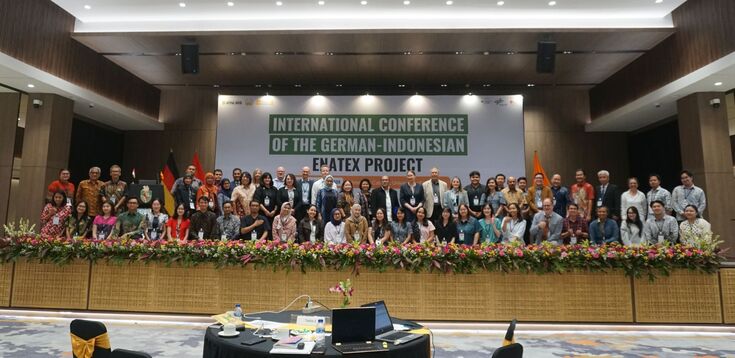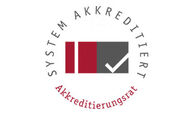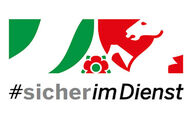After around three years, the EnaTex joint project has come to an end with a major final conference in Jakarta/Indonesia. The Hochschule Niederrhein (HSNR) and other project partners developed innovative technologies and processes for the Indonesian textile industry. The focus was on the question of how the textile industry in Indonesia can produce more sustainably. To this end, Indonesian and German partners in the EnaTex project, funded by the German Federal Ministry of Education and Research (BMBF), developed new approaches and optimised existing processes.
With success: up to 40% energy can be saved in future through various measures in the areas of pre-treatment, dyeing and finishing alone. The results were presented at Atma Jaya University in Jakarta in mid-February and discussed with textile companies and the scientific community.
In Indonesia, the Atma Jaya Catholic University in Jakarta and the Politeknik STTT Bandung were involved, as well as the textile companies SriTex and Harapan Kurnia. The German consortium passed the research institute IZES, the IFEU Institute, The Hochschule Niederrhein and the companies Brückner Trockentechnik GmbH & Co KG and Sunfarming.
The Research Institute for Textile and Clothing (FTB) at Hochschule Niederrhein tested innovative processes as part of EnaTex in order to reduce the use of resources in textile production. On the one hand, dyeings and functional finishes were analysed using the kiss-roller method or by means of rotor spray units and the use of innovative dyes was investigated. On the other hand, ultrasonic technology was evaluated for innovative washing processes and improved process control. With the various technologies, 20 - 40 % savings in water and energy consumption can be realised, in some cases with little or no investments. The conversion of dye classes alone has made it possible to reduce carbon dioxide emissions by up to 25 % per kilogramme of textile.
These savings are all the more important as the European regulations on making fossil fuels more expensive also affect the textile industry. In future, the introduction to textile products manufactured using fossil fuels will be subject to higher customs duties. Many international brands are already calling for the phasing out of fossil fuels in their supply chains, which poses a major challenge for the textile industry in the manufacturing countries.
Meanwhile, the HSNR Institute of Industrial Safety, Environmental Protection, Health Promotion and Ethics (A.U.G.E.) is working to ensure human rights due diligence with training programmes to raise awareness among managers. Sustainability in the supply chain also includes social compliance.
Researchers Evelyn Lempa (FTB) and Aslihan Memisoglu (A.U.G.E) were pleased with the great response from the companies regarding the implementation of measures for innovative technologies and health and safety. The close cooperation with the Indonesian partners contributed significantly to the success of the project. "It is important that sustainability can be easily integrated into daily processes - then it will also be implemented. We have achieved this," emphasise Lempa and Memisoglu.
For the German project partners, the high level of acceptance of the technologies and processes developed in the Indonesian companies was particularly pleasing. At the same time, the results achieved offer German companies the opportunity to successfully introduce their innovative technologies to the Indonesian market - one of the world's most important sales markets for textile machinery and energy technology.



















